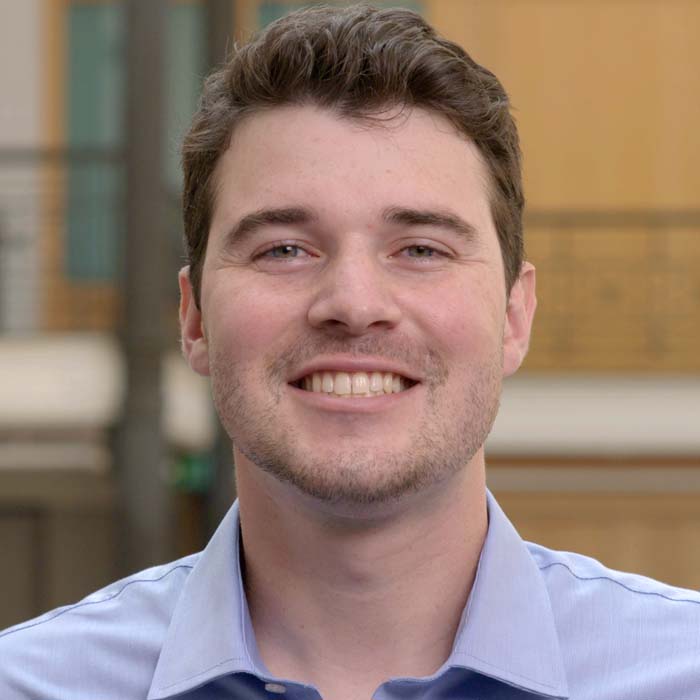HMX Moderator Profile
Chris Richey

School
Harvard Medical School
HMX Courses
Chris Richey took HMX Physiology and Immunology courses before beginning his first year as a Harvard Medical School student. “I remember feeling a little overwhelmed, and nervous that I was not going to be prepared for medical school,” he says. Chris explains how HMX courses helped to build his knowledge and introduced a new approach to learning that’s helped him succeed in medical school. Chris has since helped others learn as an HMX intern and course moderator.
What aspects of the courses did you find most useful?
I thought the clinical vignettes were really useful. When you’re learning such intricate concepts, it can be easy to get stuck in the weeds of all of the minute details of a certain topic. But being able to stand back and say, “How is this topic applicable to what I’m going to be doing, and how is this topic applicable to the patients that I’m going to be seeing?” – that was really helpful in learning the concepts, but also really motivating for my studies in medicine and a driver for my learning going forward.
After you’ve learned a certain body of knowledge, you can then test what you know with different scenarios that you’re given in the assessment questions. Not only is that shown by research to be great for building knowledge, but it’s also fun and it’s a great way of encouraging yourself in your learning. You’re taking this information that you have and you’re not just knowing it for the sake of knowing it, but you’re also able to apply that knowledge and solve problems with it.
Why would you recommend these courses, particularly for new medical students?
I would recommend HMX courses because they give you a good idea of the process in medical education. As you’re in medical school you start learning in a different way. You do have to understand the foundational concepts and how all of those things work, but it’s not enough to just stop there. You have to then take that information and apply it to clinical scenarios where it makes a difference whether or not you fully understand the processes that are happening.
I think the ability to have – before going into medical school – an idea of the importance of learning in that way, and getting to see how you learn best in that style, is really important and something that’s unique to HMX.
How much do you feel like you learned in the courses?
I feel like I learned a lot…and I think I’ve appreciated how much I’ve learned now, going through the formal medical school physiology curriculum and immunology curriculum, and reflecting back on some of the topics that I learned in HMX and realizing that those foundational ideas of what I learned there are still sticking with me.
I think, as I was going through the material, I really felt confident that I was learning a lot through the program. It was a new way of learning, but it was something that I was really enjoying and something I felt was really working for me.
How has your HMX experience influenced the way you look at learning new things?
I think that HMX has showed me that you can’t just take what you’re learning at face value. It’s easy to feel that you have the illusion of understanding something. But it’s not enough to simply receive information. You also have to synthesize that information and have the opportunity to give it back in different ways – solving problems and answering questions to make sure you master the material and that you are able to do something with it beyond just knowing it for yourself. So I think moving forward, what I’ll take away from the HMX experience is that I’ll constantly be checking to make sure I really do understand the material that I’m being taught and I’m not just feeling complacent in knowing that it has been presented to me.
